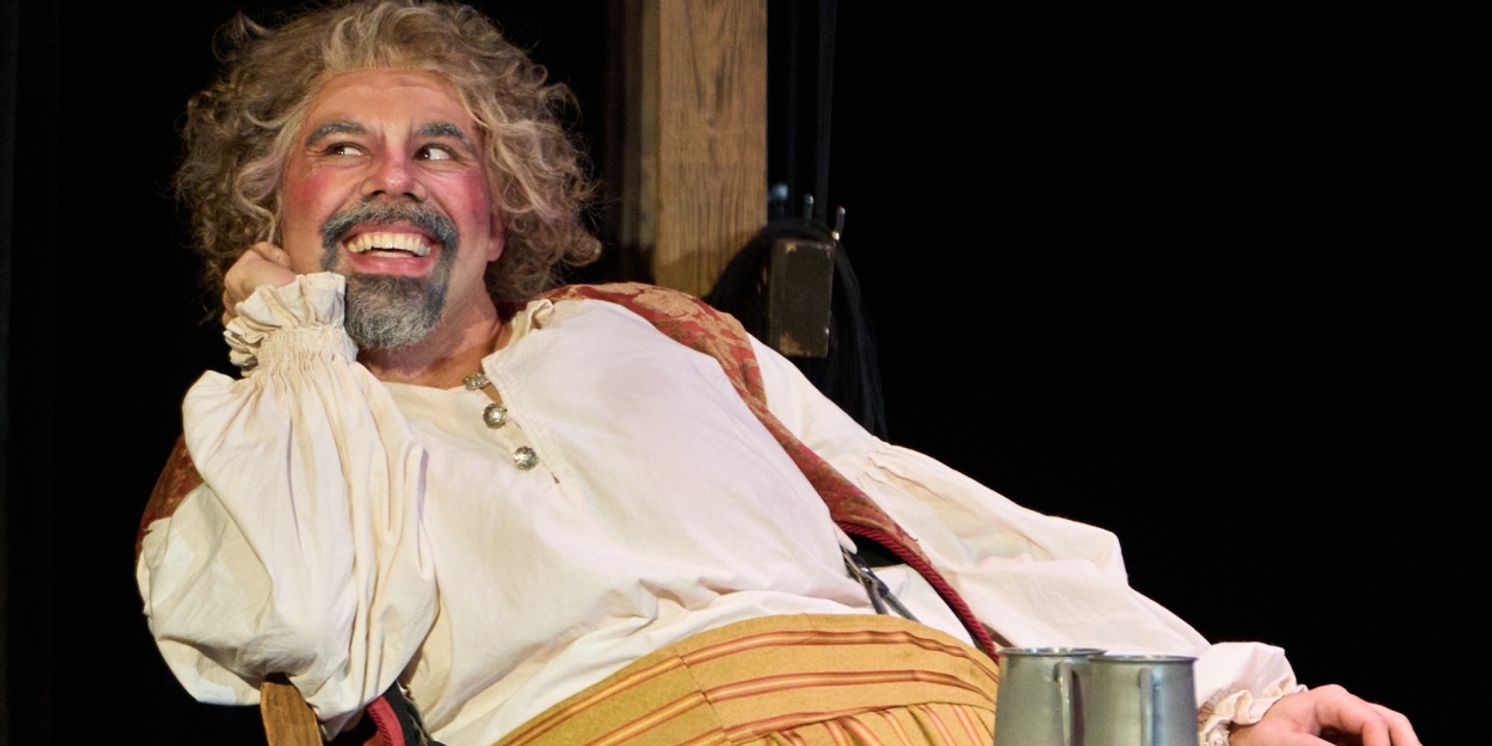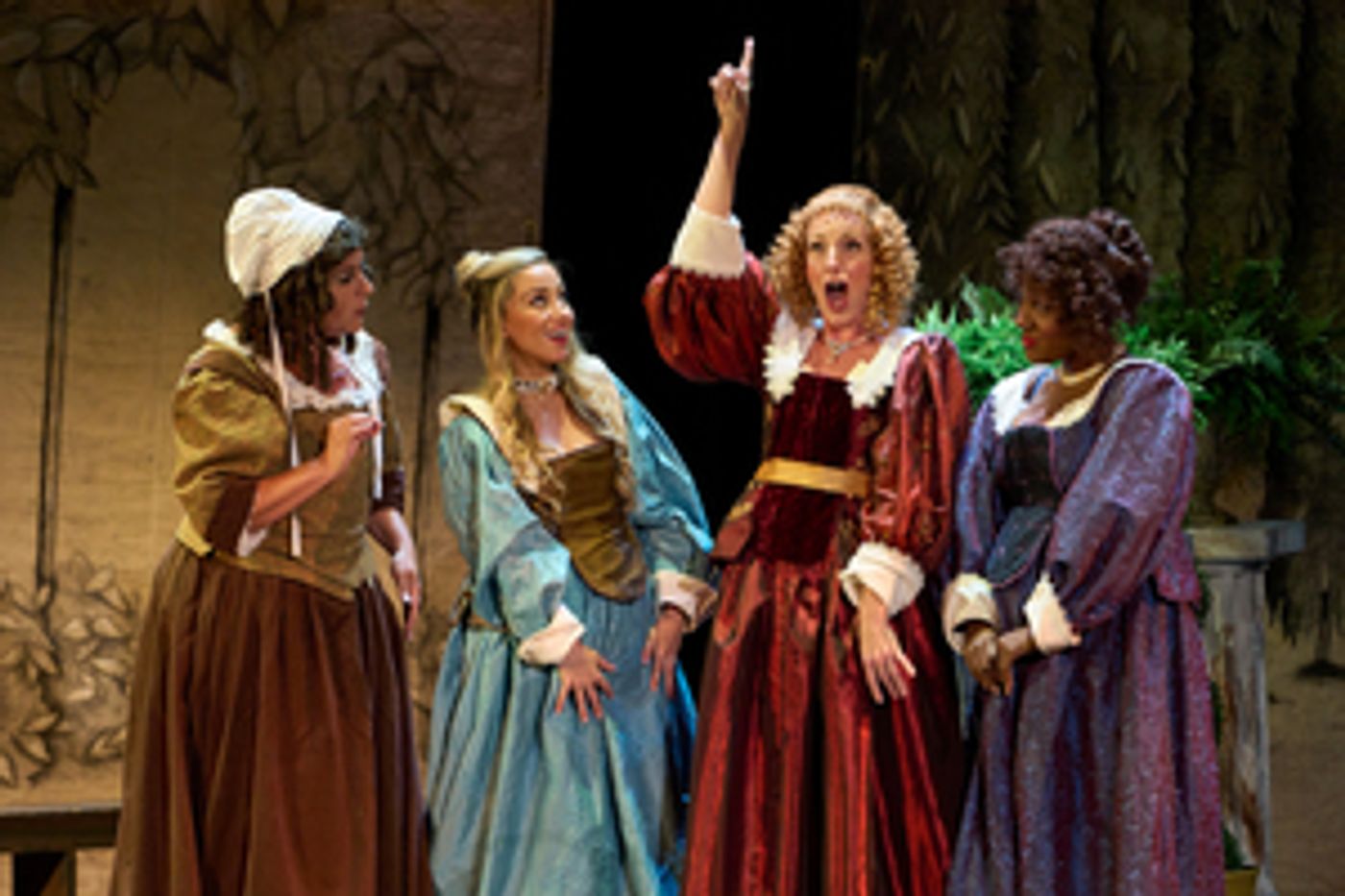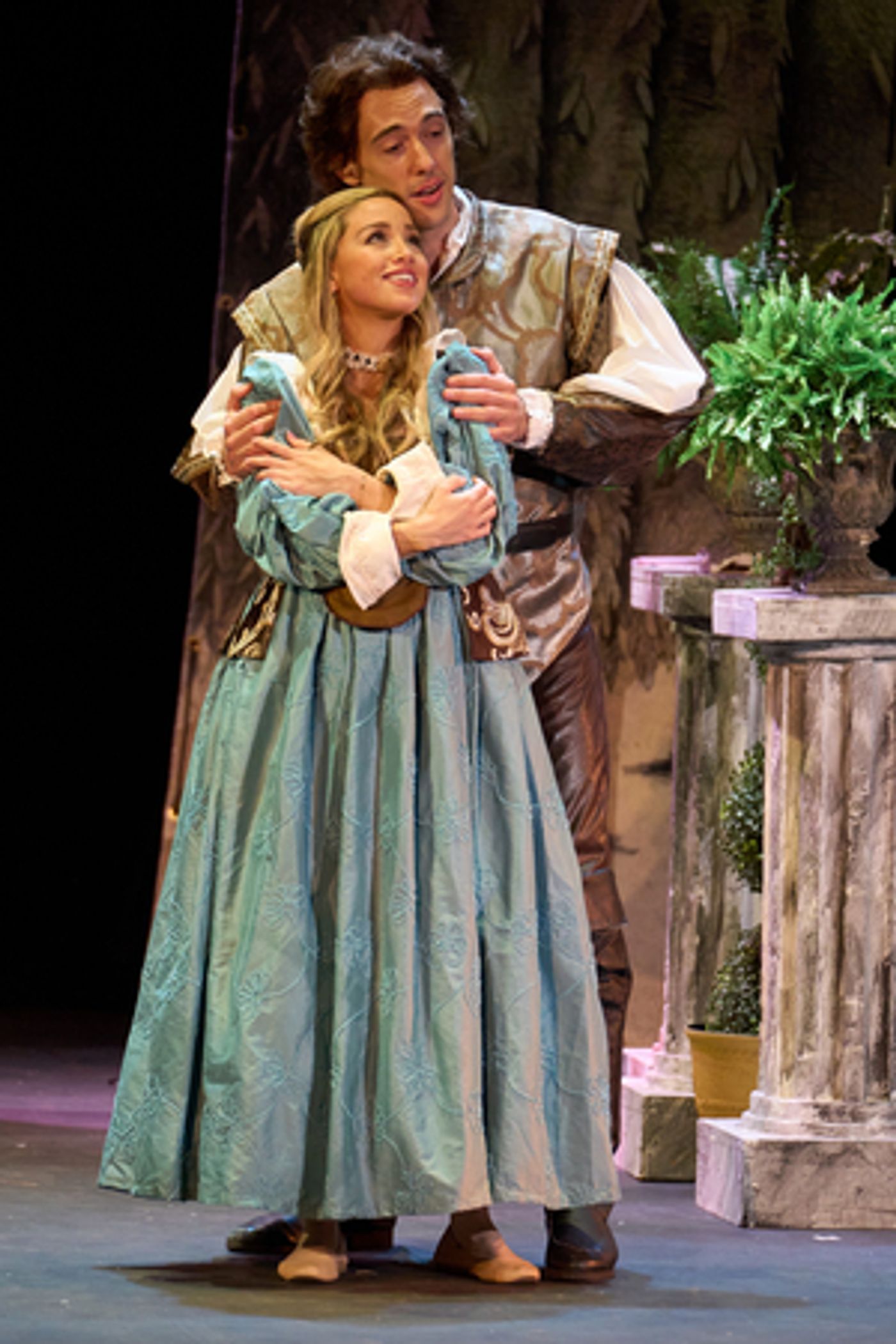Review: FALSTAFF at Union Avenue Opera
Verdi's final masterpiece overflows with glorious voices.

The Union Avenue Opera has opened a splendid production of Falstaff.
I'm not a big fan of "re-purposing" classic plays. Poor Shakespeare! He's been subjected to such vandalism over the years with modern "concept" versions of his works. No, I do not want to go to see a trendy lesbian-Hamlet-on-Mars!
But when Giuseppe Verdi and Arrigo Boito (his librettist) sat down together in 1890 to adapt three of Shakespeare's plays into one opera, that was something different. The resulting Falstaff is Maestro Verdi's ultimate and final masterpiece--and really quite true to the Bard. The great fat knight from Henry IV (parts one and two) and Merry Wives of Windsor is deliciously recognizable and vigorously alive here in this evening of quite amazing music.
Verdi and Boito have a checkered history. Boito (seven years Verdi's junior) was from a wealthy, noble family full of highly educated, deeply cultured people. Verdi was the son of an inn-keeper and a spinner. Boito had been a member of the "Scapigliati" ("the disheveled")--a radical arts movement that despised tradition--sort of Bohemian hippie anarchists, if you will. In his writings Boito had nastily attacked current Italian music and art. He had deeply offended Verdi, who wouldn't speak to him for some years.
But Boito was a truly fine poet, and he himself had composed operas. Moreover he had already written a libretto for another composer's Hamlet. So, when the publisher Ricordi urged Verdi to come out of retirement to work with Boito on a Shakespeare opera--he was tempted.
After all, they had similar political passions--the Risorgimento--the liberation and unification of Italy. Boito had fought as a volunteer with Garibaldi, the "father of his nation". Verdi's very name had become an acronym for Italian liberty, as symbolized in the new nation's first king: "Vittorio Emanuele Rei D'Italia".
So the collaboration began. First Otello (1887) and then Falstaff (1893). Now Rossini could write The Barber of Seville in less than three weeks, while Verdi and Boito worked on Falstaff for three years. But it was worth it!
The current Union Avenue Opera production is gloriously successful! Verdi, writing this near his 80th birthday, gives us astonishingly rich, complex and energetic music. Without even a gesture at an overture we start right into the rollicking action of Act One.
Falstaff, short of funds, decides to seduce two married women and thus access their money. But the ladies are onto his scheme, and set out to teach him a lesson. Much comedy ensues.
Last season Robert Mellon was a brilliant Figaro in Union Avenue's Barbiere di Seviglia. Now he is the perfect Falstaff. The additional apparent avoirdupois has not in the least weighed down his splendid baritone voice, which rises to truly fill the hall. And what a sense of comedy! (Such a smile! [Such teeth!]) Towards the end, after Falstaff has been mocked and abused and dunked in the muddy Thames, we see him slumped alone, exhausted, quiet--sagging like a fat, defeated lump of despair. But then Mellon's glorious voice bursts out brimming with life and vigor. It's astonishing!
Falstaff's henchmen, Bardolfo (Marc Schapman) and Pistola (Mark Freiman), are fine singers and most admirable comics. They fill every moment with life and action.

Karen Kanakis, Melody Wilson
The merry wives, are merry indeed. Karen Kanakis who in recent seasons sang central roles in Winter Opera's Fanciulla del West and Suor Angelica, does spot-on perfect work as Mrs. Alice Ford. She's tall and lovely. She has the glamour, grace and carriage of a diva, a voice that just shines, and a delightful comic sense. Melody Wilson sings Mrs. Meg Page, Falstaff's other romantic target. It's a smaller role, but Wilson makes the most of it with her lovely mezzo voice and wonderfully expressive eyes.
The two young lovers from Union Avenue's Candide return as the young lovers, Nanetta Ford and Fenton.

Brooklyn Snow is weepingly beautiful in person and in voice. Her pure soprano can carry those solitary high notes almost endlessly. And tenor Jesse Darden, again, fills his songs with utter sweetness.
Mezzo Janara Kellerman merits special praise in her role of Mistress Quickly. She lavishly fulfills the comic and melodramatic requirements of this role. And her voice is gorgeous. Five stars!
Anthony Heineman (a Union Avenue favorite) as Dr. Caius, the butt of the romantic joke in Falstaff, and Jacob Lassetter as Ford, the suspicious husband, do excellent work.
Verdi's music is very like a fine film score. It is programmatic in a detailed way. Once each footstep is marked by a pizzicato (like Sylvester tip-toeing up on Tweety-Bird). Twice the shaking of a bag of gold coins is accompanied by an instrumental shimmer and clink. But such things are trivial. The music overall is wonderfully rich and complex. One scene has the quartet of women and the quintet of men singing rapidly with different lyrics and in different time signatures! Then one man moves center, and we have two quartets and a solo; then he returns to his quintet. It's Verdi at his best.
And he was nearly eighty!
Director Stephen Hargreaves leads his large orchestra to a fine marriage with the singers, always supporting the voices, never dominating them. Hargreaves shows a masterful handling of dynamics.
Stage Director Jon Truitt handles this large cast deftly, with great attention to comic detail. (The forest scene where Falstaff is poked and pinched and tormented by all the imps and fairies was rather constrained by the small acting area--but that scene is a little presumptuous to begin with.)
Scene designer Lex Van Blommenstein makes the most of the tiny stage, with a number of hanging cloth panels that are lowered or raised to give us an inn, a home, a forest with a great oak. The scene changes are marvelously swift. (Kudos to stage manager Megan-Marie Cahill.) The raising and lowering of those scenic panels is accompanied by a quaint squeak of rope-and-pulley. Lovely! So real, so old-fashioned! Not a touch of electronics anywhere (except in the skillfully presented supertitles).
Costumes, by Teresa Doggett, are quite wonderful--perfectly period and well-fitted, they look as if these people really live in those clothes. (Alice Ford's cloak and hood in the forest scene are simply gorgeous.) Patrick Huber's lighting captures the merriment and/or spookiness of every scene.
Verdi and Boito, after working together, became good friends, and when Verdi died Boito was at his bedside.
Verdi's Falstaff is another glittering gem in the train of Union Avenue Opera.
"If it really was Queen Elizabeth who demanded to see Falstaff in a comedy, then she showed herself a very perceptive critic. But even in The Merry Wives of Windsor, Falstaff has not and could not have found his true home because Shakespeare was only a poet. For that he was to wait nearly two hundred years till Verdi wrote his last opera. Falstaff is not the only case of a character whose true home is the world of music; others are Tristan, Isolde and Don Giovanni." --W. H. Auden
Reader Reviews
Videos

